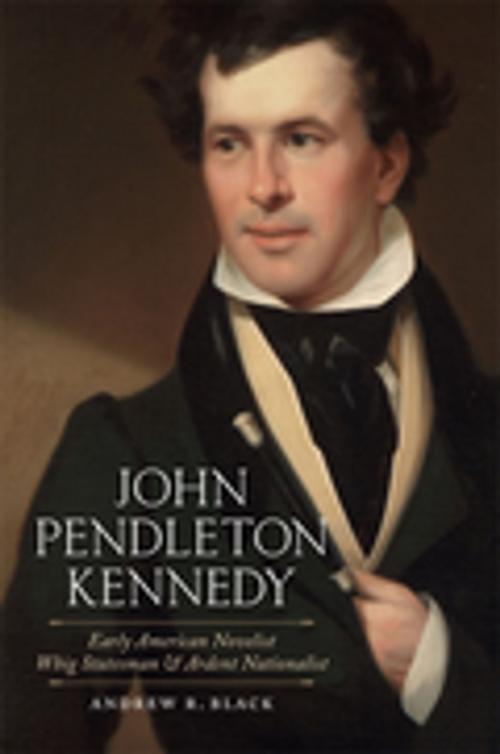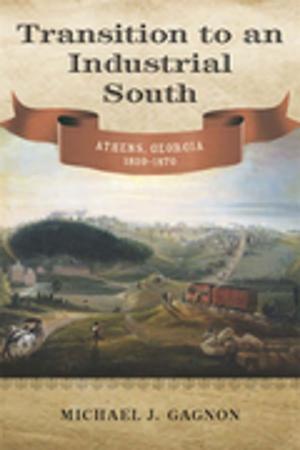John Pendleton Kennedy
Early American Novelist, Whig Statesman, and Ardent Nationalist
Biography & Memoir, Literary, Nonfiction, History, Americas, United States| Author: | Andrew R. Black | ISBN: | 9780807162965 |
| Publisher: | LSU Press | Publication: | July 11, 2016 |
| Imprint: | LSU Press | Language: | English |
| Author: | Andrew R. Black |
| ISBN: | 9780807162965 |
| Publisher: | LSU Press |
| Publication: | July 11, 2016 |
| Imprint: | LSU Press |
| Language: | English |
John Pendleton Kennedy (1795--1870) achieved a multidimensional career as a successful novelist, historian, and politician. He published widely and represented his district in the Maryland legislature before being elected to Congress several times and serving as secretary of the navy during the Fillmore administration. He devoted much of his life to the American Whig party and campaigned zealously for Henry Clay during his multiple runs for president. His friends in literary circles included Charles Dickens, Washington Irving and Edgar Allan Poe.
According to biographer Andrew Black, scholars from various fields have never completely captured this broadly talented antebellum figure, with literary critics ignoring Kennedy's political work, historians overlooking his literary achievements, and neither exploring their close interrelationship. In fact, Black argues, literature and politics were inseparable for Kennedy, as his literary productions were infused with the principles and beliefs that coalesced into the Whig party in the 1830s and led to its victory over Jacksonian Democrats the following decade. Black's comprehensive biography amends this fractured scholarship, employing Kennedy's published work and other writing to investigate the culture of the Whig party itself.
Using Kennedy's best-known novel, the enigmatic Swallow Barn, or, A Sojourn in the Old Dominion (1832), Black illustrates how the author grappled unsuccessfully with race and slavery. The novel's unstable narrative and dissonant content reflect the fatal indecisiveness both of its author and his party in dealing with these volatile issues. Black further argues that it was precisely this failure that caused the political collapse of the Whigs and paved the way for the Civil War.
John Pendleton Kennedy (1795--1870) achieved a multidimensional career as a successful novelist, historian, and politician. He published widely and represented his district in the Maryland legislature before being elected to Congress several times and serving as secretary of the navy during the Fillmore administration. He devoted much of his life to the American Whig party and campaigned zealously for Henry Clay during his multiple runs for president. His friends in literary circles included Charles Dickens, Washington Irving and Edgar Allan Poe.
According to biographer Andrew Black, scholars from various fields have never completely captured this broadly talented antebellum figure, with literary critics ignoring Kennedy's political work, historians overlooking his literary achievements, and neither exploring their close interrelationship. In fact, Black argues, literature and politics were inseparable for Kennedy, as his literary productions were infused with the principles and beliefs that coalesced into the Whig party in the 1830s and led to its victory over Jacksonian Democrats the following decade. Black's comprehensive biography amends this fractured scholarship, employing Kennedy's published work and other writing to investigate the culture of the Whig party itself.
Using Kennedy's best-known novel, the enigmatic Swallow Barn, or, A Sojourn in the Old Dominion (1832), Black illustrates how the author grappled unsuccessfully with race and slavery. The novel's unstable narrative and dissonant content reflect the fatal indecisiveness both of its author and his party in dealing with these volatile issues. Black further argues that it was precisely this failure that caused the political collapse of the Whigs and paved the way for the Civil War.















